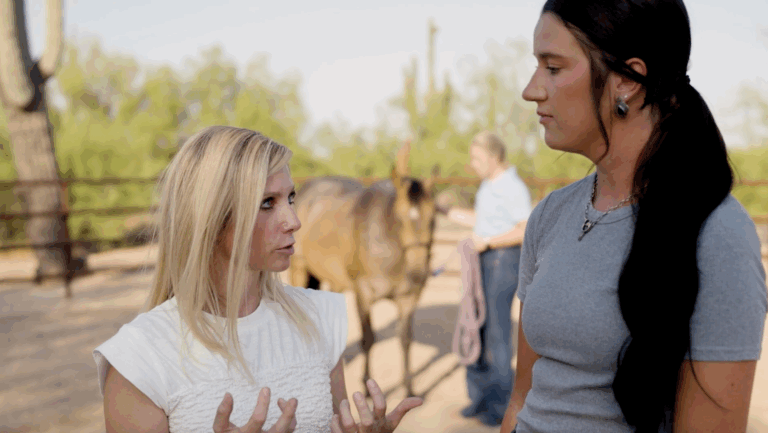
Following are reports from the Equine Disease Communication Center (EDCC) from Monday November 8 through Friday November 12. You can get information or sign up for alerts from the EDCC here.
Equine Infectious Anemia, Municipal District of Opportunity No. 17, Alberta
The Canadian Food Inspection Agency confirmed three cases of equine infectious anemia located on a premises in the Municipal District of Opportunity No. 17, Alberta, Canada. The horses had been tested by an accredited veterinarian at the owner’s request after being made aware that the horses had commingled with infected animals during the previous summer. These horses have been involved in pony chuckwagon activities. No clinical signs of disease were noted by the veterinarian when the animals were tested. A CFIA investigation is underway and as per program policy, movement controls have been placed on the infected horses and any on-premises contact animals. Movement controls will remain until all disease response activities have been completed, including follow-up testing and ordering the destruction of confirmed cases. Trace-out activities may require the CFIA to undertake actions at additional premises as outlined in the current policy. Improved biosecurity protocols have been strongly recommended to the owners to help control the ongoing spread of EIA and protect our national herd.
Equine Strangles, Marion County, Florida
The Florida Department of Agriculture and Consumer Services confirmed one case of equine strangles at a boarding facility in Marion County. Six other horses were exposed. This was the 39th confirmed case for Florida in 2021. For more information about Strangles go to the strangles factsheet.
West Nile Virus, Trigg County, Kentucky
The Kentucky Department of Agriculture confirmed one case of West Nile virus (WNV) in Trigg County. The affected horse was a 5-year-old Standardbred mare that had onset of clinical signs on Noveber 3 and was confirmed on November 12. The unvaccinated mare, which became recumbent, was euthanized.
This is the sixth case of West Nile virus in Kentucky for 2021. For more information about West Nile virus go to the WNV factsheet.
Equine Influenza, Benton and Lane Counties, Oregon
An attending veterinarian reported two confirmed cases of equine influenza at a private facility.
The first affected horse was a Paso Fino gelding that had onset of clinical signs of being lethargic with clear nasal discharge and fever on November 5 and was confirmed on November 9. The undervaccinated gelding was affected and alive at the time of this report.
The second affected horse was an 8-year-old Paso Fino gelding that had onset of clinical signs that include being lethargic and high fever on November 7. He was confirmed with equine influenza on November 9. The undervaccinated gelding was alive and affected at the time of this report.
The first gelding arrived at Oregon Horse Center (OHC) Tuesday, November 2, for an event. He became lethargic with clear nasal discharge and a fever of 105 on Friday November 5. The gelding was immediately removed from OHC and transported home to private stable.
Horse 2 (with no travel history) at the private stable became similarly sick on Sunday, November 7.
Equine Strangles, Snohomish County, Washington
The Washington State Veterinary Office confirmed one case of equine strangles at a boarding facility in Snohomish County, Washington. Four other horses were exposed.
A horse at a boarding facility in Snohomish County tested positive for equine strangles. The owner quarantined the affected horse and is taking temperatures on exposed horses and not allowing anything on or off property.
For more information about Strangles go to the Strangles factsheet.
Equine Strangles, Clark County, Washington
The Washington State Veterinary Office confirmed two cases of equine strangles at a private facility in Clark County. One horse was suspected of having strangles and 10 others were exposed.
Two horses at a private facility have tested positive for equine strangles in Clark County. Three horses were separated after clinical signs occurred, and they are being monitored under veterinary supervision.
For more information about Strangles go to the Strangles factsheet.
West Nile Virus, Washington County, Oklahoma
The Oklahoma State Veterinary Office confirmed one case of West Nile virus (WNV) at a private facility in Washington County. The 12-year-old Quarter Horse gelding had onset of clinical signs that included muscle fasciculations and stiff gait on October 23. He was confirmed with West Nile virus on October 29.
The unvaccinated gelding is recovering.
For more information about West Nile Virus go to the WNV factsheet.
Equine Infectious Anemia, Deaf Smith, Bailey and Bastrop Counties, Texas
The Texas Animal Health Commission (TAHC) confirmed five cases of equine infectious anemia (EIA).
Texas Animal Health Commission officials confirmed equine infectious anemia (EIA) in a Quarter Horse on Deaf Smith County premise, three Quarter Horses on a Bailey County premises and one Quarter Horse on a Bastrop County premises. All affected horses were euthanized. The premises have been quarantined and will not be released until TAHC’s requirements are met. TAHC staff are working closely with the owners and local veterinarians to monitor potentially exposed horses and implement biosecurity measures.
Equine Strangles, Muskegon County, Michigan
The Michigan Department of Agriculture and Rural Development confirmed two cases of equine strangles in Muskegon County. Five other horses were considered exposed.
The first affected horse was a 19-year-old Tennessee Walking horse mare that had clinical signs of nasal discharge and an abscess in the throatlatch region. She is recovering.
The second horse was a Miniature horse mare that had enlarged lymph notes and fever that is also recovering.
For more information about Strangles go to the Strangles factsheet.




